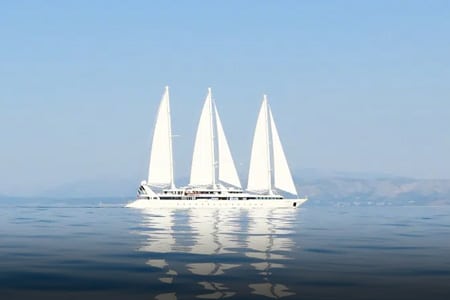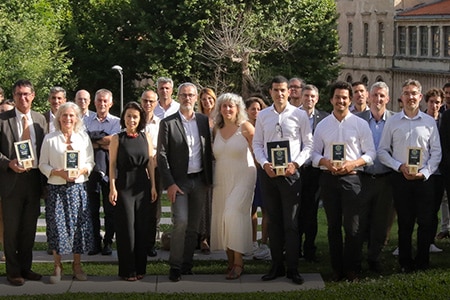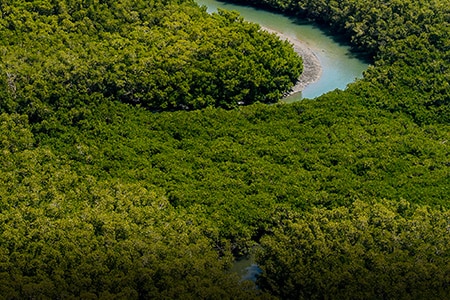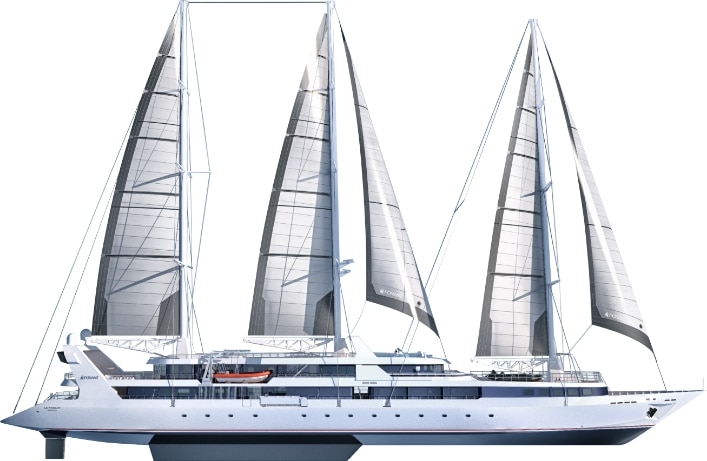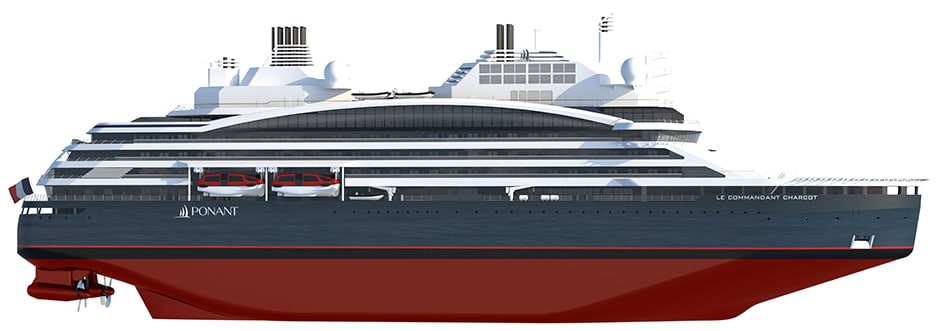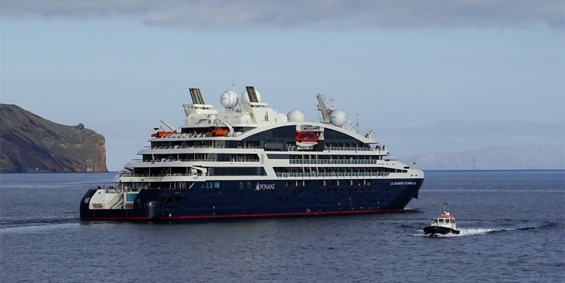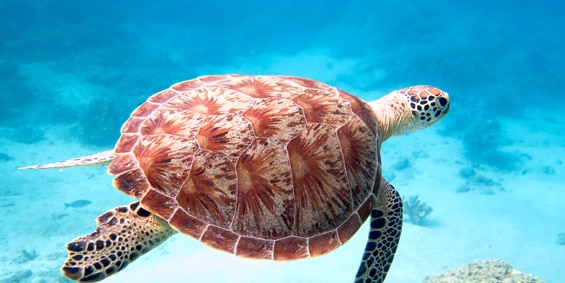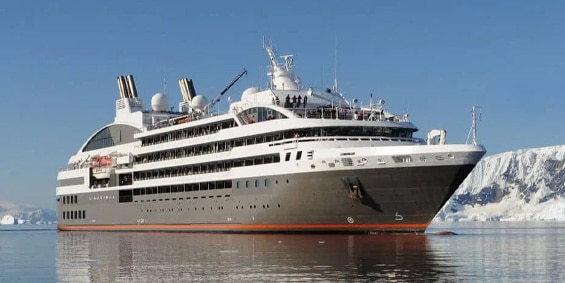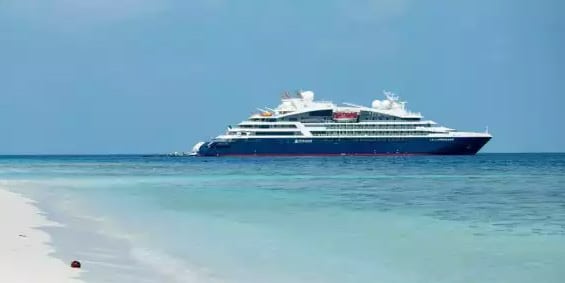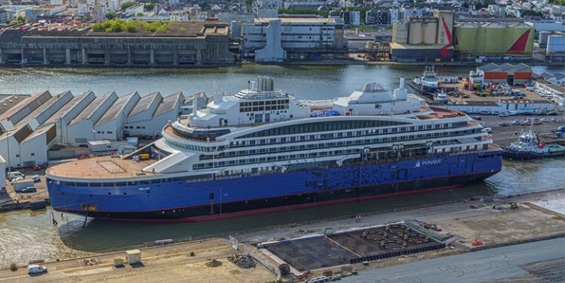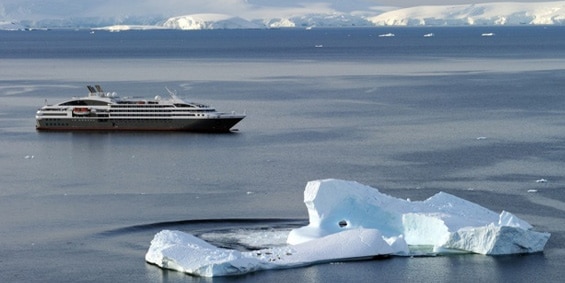For more than 30 years, PONANT has been taking its cruise guests to the planet's most remote, hidden and out-of-the-way locations, places where nature reigns supreme. Making this choice entails responsibilities towards the ecosystems that compose these places and the communities that live in them. In order to stay at the forefront of innovation, the company works on a day-to-day basis to promote a more responsible and more sustainable form of tourism through its PONANT Blue Horizon programme.
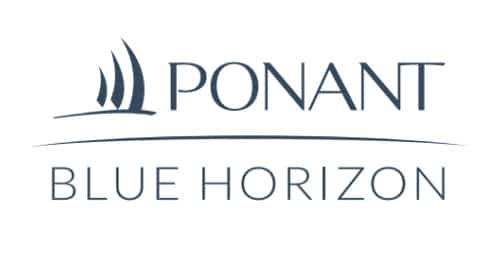
The fleet at the heart of our commitment
Conscious travels
PONANT continues to optimise its environmental performance through 6 strategic commitments

Minimise nitrogen and sulphur oxide emissions
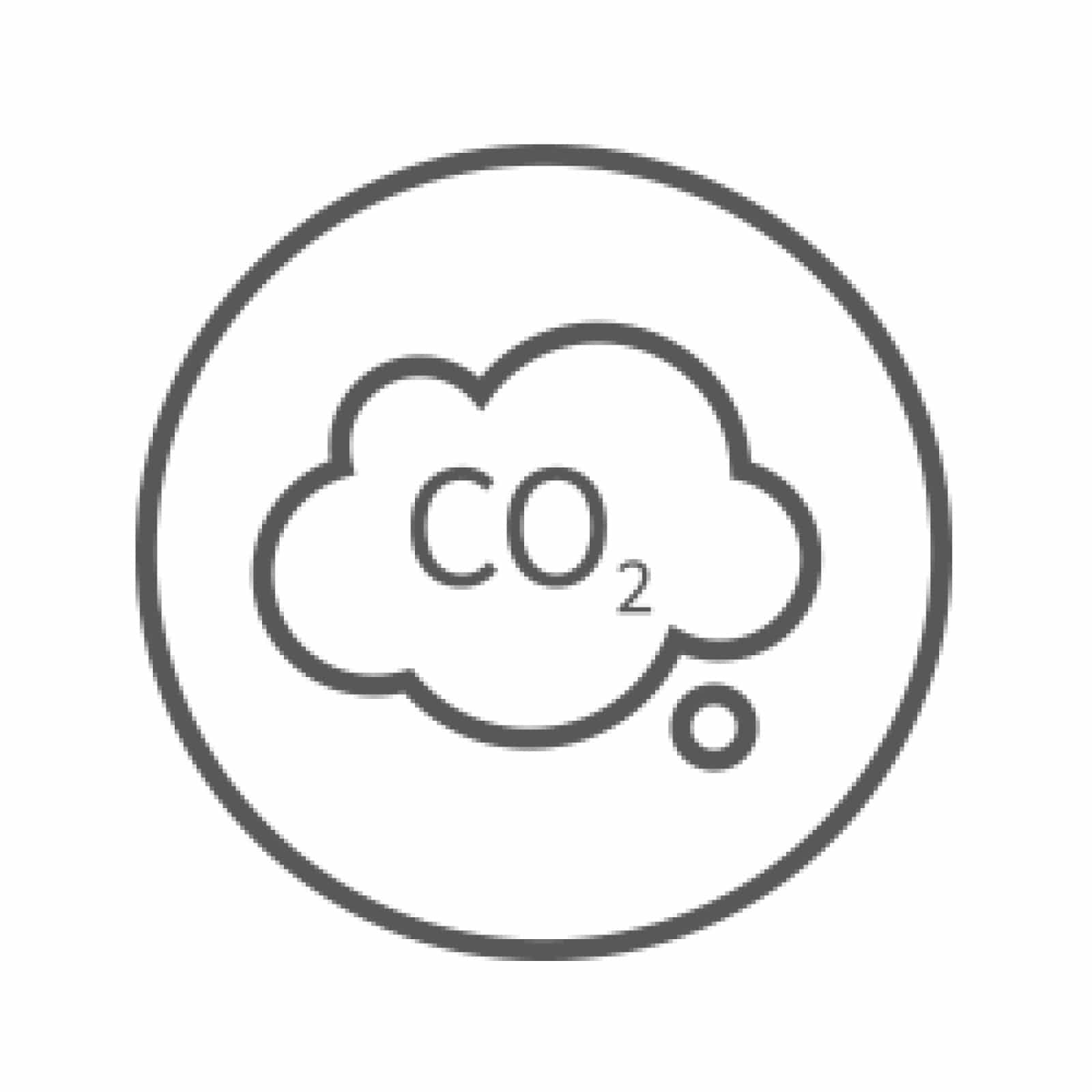
Reduce CO² emissions
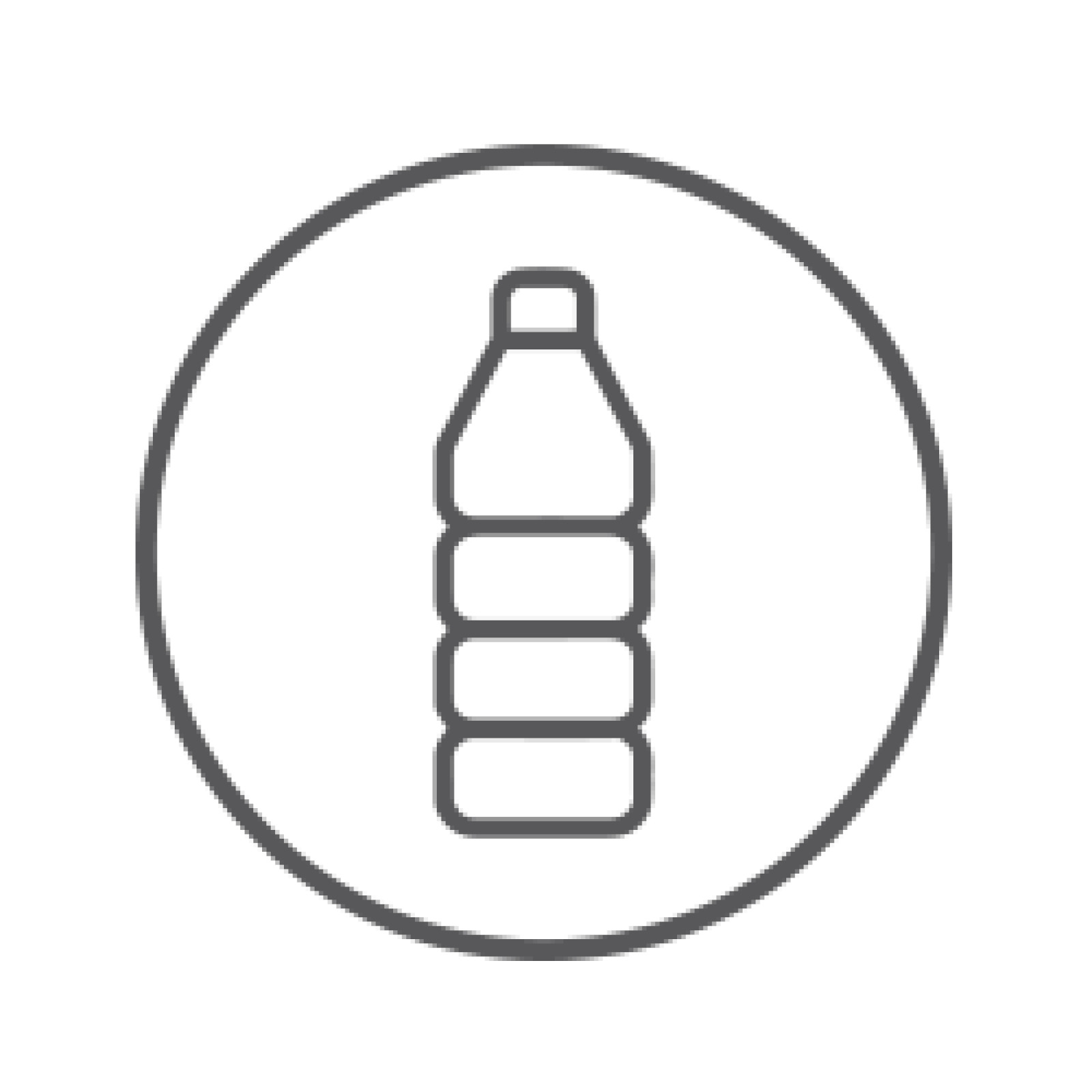
Eliminate single use plastics
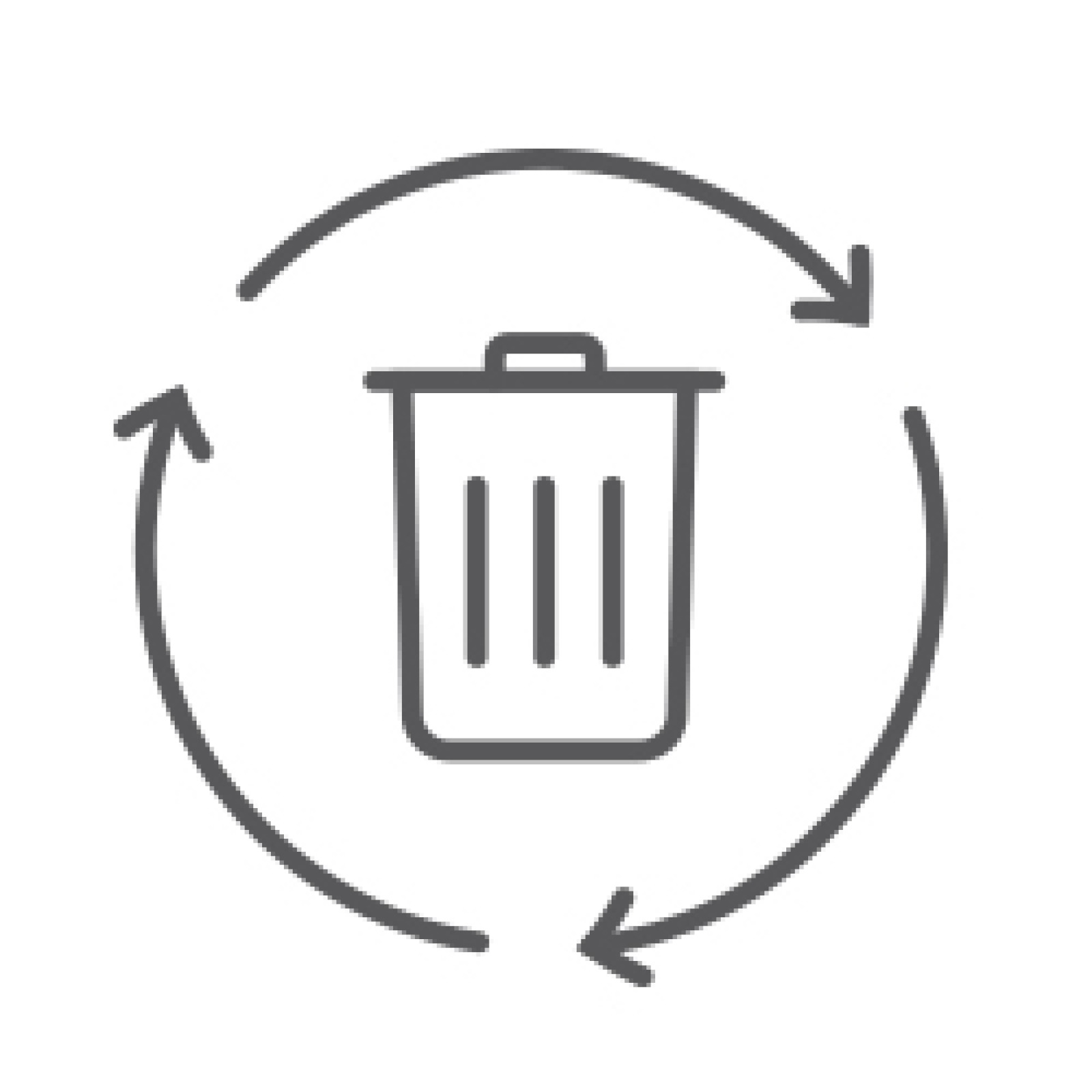
Reuse and trace all our waste

Embark scientific research teams

Support the creation of Marine Protected Areas

Minimise nitrogen and sulphur oxide emissions

Reduce CO² emissions

Eliminate single use plastics

Reuse and trace all our waste

Embark scientific research teams

Support the creation of Marine Protected Areas
Our everyday actions
Our commitment translates to concrete everyday actions, particularly in terms of the controlled and responsible approach we adopt towards what we use and consume onboard our ships, and also in terms of supporting research, awareness-raising and conversation projects around the world.
Find out more
PONANT Foundation
Established in 2018, the PONANT Foundation's goal is to conserve the oceans and poles and to promote exchanges between populations. In order to do this, we commit to supporting innovative initiatives led by researches, NGO, start-ups or businesses working to preserve oceans, build scientific knowledge about the polar regions and interact with indigenous populations.
Discover the Foundation
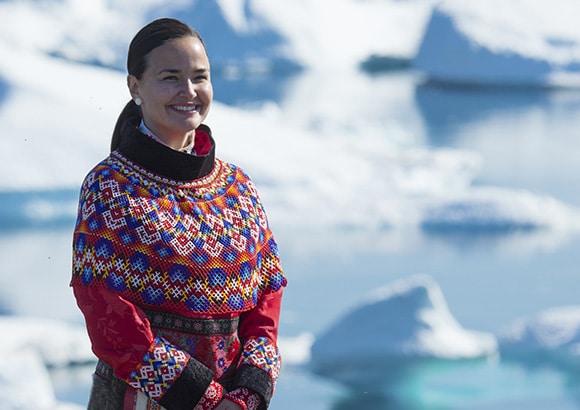
The traveller’s ethical charter
Whether on sea, on land or on ice: we strive to minimise our footprint and ask you to do the same.
Discover the charter
An international recognition
PONANT is setting an inspiring example and leading the way. Our actions in favour of the environment are regularly rewarded and relayed at both a national level and internationally.
The environment
The main sustainable development focus, environmental conservation, is one of our priorities. Our actions are structured around 5 strategic commitments.

Consider the whole world as a “controlled sulphur and nitrogen oxide emission zone”
In 2019, PONANT became the first cruise line to abandon the use of fuel oil and switch instead to Low Sulfur Marine Gasoil (LSMGO) with a 0.05% sulphur content. This is 10 times lower than the maximum allowed by current maritime regulations. A measure awarded the French Prix des Palmes du Tourisme Durable 2020 prize in the "Travel" category.
The ships of the PONANT EXPLORERS series achieve a 90% reduction in their nitrogen oxide emissions by having their catalytic convertors operating 24 hours a day in all geographical areas. A globally unique approach that has set the standard for the entire industry.

Reduce our CO2 emissions
PONANT has taken significant steps to reduce its atmospheric emissions across the board in terms of fuel consumption:
- Optimisation of the daily speed: his relatively low speed means we can expect to reduce our fuel consumption by 30%.
- Digital navigation aids and weather routers to improve the energy efficiency of the ships
- Fitting of ships with electric connections together with the use of shore-to-ship power when docked at suitably equipped ports.
- Development of the hybridity of its ships: fitting of batteries to enable generators to be switched off at dock, at anchor and when in proximity to inhabited areas, use of synthetic fuels like e-LNG.

Completely eliminate single use plastics
As has been implemented on the expedition ship, Le Commandant Charcot, PONANT is rolling out its “Zero Plastic” policy on all its ships.
Key to this measure is a ban on single use plastic water bottles across the fleet, thanks to the installation of systems to produce drinking water from seawater. This amounts to a saving on usage of nearly a million single use plastic water bottles, that’s over 30 tonnes of plastic, a year.
Distribution of metal refillable water gourds is not only reducing plastic waste but helping raise awareness among passengers of the issue.

Ensure reuse and traceability of all waste
As well as actions taken on board, the company works collaboratively with all service providers and ports to ensure recyclable waste like cardboard, tin cans and packaging are being recycled and reused.
The company has conducted a pilot project with the Port of Ushuaia to ensure the selective sorting and recovery of each category of waste.

Embark scientific research teams aboard the high polar exploration ship, Le Commandant Charcot
The latest addition to the PONANT fleet has two research laboratories and autonomous measurement instruments.
Several long-term scientific partners enable teams of researchers – such as biologists, geographers, oceanographers, climatologists and ethnologists – to work in polar regions on a repeat basis in places that are either still unexplored or rarely visited, allowing them to extend their polar campaigns.

Support the international Blue Nature Alliance project that aims to create 18 million km² of Marine Protected Areas (MPAs) by 2025.
Our everyday actions
Our commitment translates to concrete everyday actions, particularly in terms of the controlled and responsible approach we adopt towards what we use and consume onboard our ships, and also in terms of supporting research, awareness-raising and conversation projects around the world.
Procurement of supplies through local distribution channels
The elimination of single-use plastics
PONANT was one of the first companies to sign up to the Southern Region's "Zero Plastic Waste" charter.
By signing this charter, PONANT is committed to:
- actively contributing to the awareness of plastic waste reduction,
- implementing the prudent use of plastics,
- participating in the management and recycling of plastic waste.
PONANT also committed to following the recommendations of the Global Tourism Plastics Initiative, a United Nations programme aimed at encouraging concrete action in the fight against plastic pollution in the tourism sector. Echoing the measures already introduced on Le Commandant Charcot, PONANT has set itself the objective of banning the use of single use plastics across its entire fleet from 2022 onwards.
On board, PONANT has prohibited the use of plastics in drinking straws, laundry bags, cups and single-serving food portions. Packaging is removed at our depots. As part of measures to stop the use of plastic bottles on all our ships, we provide our cruise passengers with stainless-steel flasks that can be filled at water fountains available on board, thus reducing the number of plastic bottles used by 10 bottles per passenger per ship.
The Nordaq system on Le Commandant Charcot enables us to bottle drinking water produced on board in reusable glass bottles.
PONANT has stopped using single-use plastics at its head offices. Every member of staff has been issued with a reusable water bottle and a reusable cup. Recycling bins for plastic, paper and general waste are available on each floor. Sixty-one percent of the plastic bottles and cans thrown away at our head offices are now recycled. These measures resulted in a one tonne reduction in the amount of plastic used in the first year they were introduced. The waste produced is collected for recycling by ELISE, a local company with a socially responsible ethos.
We are continuing to look at alternative and innovative ways of both reducing the use of plastics on board our ships and in our offices and recycling and making the best use of any plastics we do use.
Cleaning of beaches
PONANT regularly organises beach cleaning exercises, both in Marseille, in partnership with the Pure Ocean Foundation as part of the "Engagé pour la nature" programme operated by France's Ministry of Ecological Transition and the country's national biodiversity agency, and on Water Cay, a small island of the Utila archipelago in Honduras. Our crew members put their spare time and energy to good use by organising a waste clean-up operation, with all the rubbish collected taken away and sorted on board the ship.
For five weeks, volunteers from Queens' College and the Seychelles Islands Foundation took part in an operation to clean the Aldabra Atoll, which had experienced a considerable build up of plastic waste over recent years. Interview with project instigator Lindsay Turnbull.
Procurement of supplies through local distribution channels
PONANT's very carefully chosen and selected food and drink products are sourced from suppliers compliant with the requirements of ISO standards 22000 and 14001 governing food safety and the environment. PONANT pays close attention to meat origin and animal welfare.
Optimal waste-water treatment processes
The ships are each equipped with a submerged membrane bioreactor: a complete waste-water desalination and treatment system. This biodegradation process works without the use of chemical products. It provides clean water and is compliant with the highest quality standards. The quality of the water obtained means that no chlorination or any other chemical treatment is required. The purity of the water produced enables it to be used onboard, particularly for supplying the laundry rooms.
Not only does PONANT manage black-water discharges, but it also manages grey-water discharges (water from showers, sinks and kitchens) and treats ballast water to ensure no living organisms are either uptaken or discharged.
Sciences
Scientists specialising in fields as diverse as palaeoclimatology, marine biology, microbiology and oceanography conduct experiments on board our fleet and collect data as part of international research programmes aimed at developing a better understanding of marine ecosystems and better ways of protecting them.
In particular, and together with the organisation Conservation International, the PONANT Foundation is conducting a study of the behaviour of humpback whales in the Southern Hemisphere and taking action to protect the coral reefs of New Caledonia.
Interview with Herbert Lust, spokesperson for Conservation International.
The PONANT Foundation is also supporting the Pure Ocean Foundation, which finances and promotes a range of innovative scientific studies focused on developing sustainable ways of preserving and protecting the oceans.
Interview with David Sussman founder and president of the Pure Ocean Foundation.
A ship of scientific opportunity, Le Commandant Charcot is equipped with its own laboratories and hosts specialist researchers in glaciology, oceanography, marine biology, climatology, and social sciences and humanities on board. It provides a unique opportunity for collecting scientific data on a regular basis, data that can then be used to develop a better understanding of these fragile ecosystems and better ways of preserving and protecting them.
"Giving science a place on board our ships is an integral part of our DNA."
Wassim Daoud, head of sustainability and CSR at PONANT.
Making good use of waste
Onboard the ships, 60% of packing is recycled, whereas the rate across the world is just 20%. The rest is completely tracked and traced.
PONANT is actively working to optimise the ways in which the waste it produces is managed on land and has compactors available onboard for each type of waste. This makes it possible to optimise both the storage volumes onboard and the unloading process at ports.
PONANT is committed to a policy of leaving zero plastic waste behind in the natural environment.
Because Le Commandant Charcot sails to particularly remote and isolated regions, the ship is equipped with twice as much storage capacity as the other ships in the fleet, thus ensuring the waste can be disposed of at ports equipped with the infrastructure required to recycle it. At Svalbard in the Arctic, our dry waste (cardboard containers and packaging) is collected and used to produce energy.
The PONANT Foundation has been supporting the Garrahan Foundation in Ushuaïa since 2020 by donating the recyclable waste produced on our Arctic cruises to it on the return leg of each voyage. The association then uses this waste to generate funds for Garrahan paediatric hospital.
Conserving biodiversity
Our ships are equipped with seabed detectors. In areas known to be frequented by marine animals we reduce the speed of our ships to 10 knots. Naturalistguides are available on the bridge with the officers to detect the presence of animals.
Our fleet is among the quietest in the world. We take the utmost care to cause as little underwater disturbance to wildlife as possible.
The antifouling treatment of ships’ keelsons prevents the accumulation of microorganisms on the hull and their transport to areas where they could upset the ecosystem. This treatment is carried out using approved and certified paints.
Le Commandant Charcot, a hybrid-electric extreme polar exploration ship powered by liquified natural gas (LNG), is able to switch to electric mode to ensure quiet, zero-emission navigation through protected regions.
We use an electronic dynamic positioning system for ships without anchoring. This enables us to not drop anchor in sensitive areas.
Energy saving measures
- Navigation software to reduce fuel consumption.
- LED light bulbs: responsible for a 75% reduction in the amount of electricity used for lighting the ships.
- A central heating system fed by recuperating the heat generated by the exhaust gases emitted by the engine cooling system.
- A seawater-based cooling system for the ships.
- Crew members trained to minimise energy consumption by switching lights off, turning taps off and other similar measures – simple but important steps to take when considered in terms of the scale and size of a ship.
Circular economy
PONANT supports and participates in the circular economy by donating furniture and equipment it no longer needs to local organisations so they can be given a second life and reused.
Eco-responsible brochures
To reduce the environmental impact of our brochures, we have adopted good practices:
- Printing on 100% recycled paper
- Replacing plastic film with 100% recycled card envelopes
- Optimising distribution of promotional material by being alert to each customers’ needs
- Sending obsolete materials to a recycling centre to be transformed and reused
The traveller’s ethical charter
Whether on sea, on land or on ice: we strive to minimise our footprint and ask you to do the same.
Learn about the destination before the voyage
Taking an interest in the destination and finding out about its inhabitants, wildlife and culture is where the voyage really begins. Take only the essentials you need in your luggage and comply with the rules and regulations stipulating which items cannot be imported.

Leave no lasting signs of your visit
Do not leave litter on site, avoid trampling on the vegetation, do not move anything or remove anything from the places visited (sand, stones, bones, plants, etc.) and do not carve on rocks, ruins or buildings.
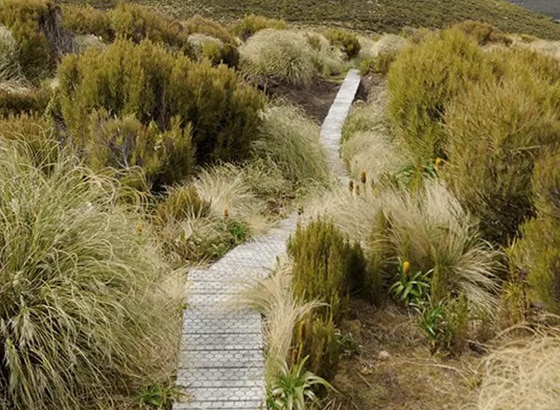
Watch wildlife from a distance
In order to avoid disturbing the wildlife, it's essential to keep a good distance away, be as quiet as possible, not make quick or sudden movements, not take food, and not hamper the animals' freedom to move from place to place. In polar regions, do not speak to the guides responsible for guarding against bears.
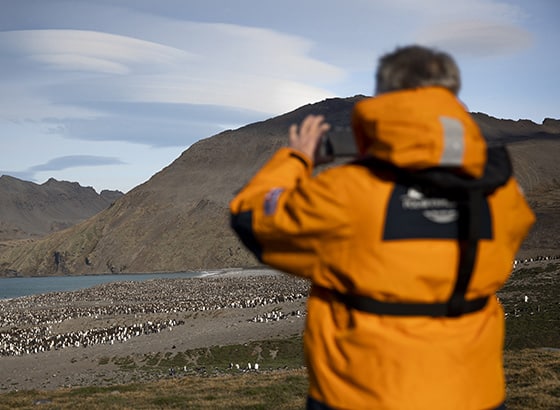
Adapt to local cultures
The meetings and encounters with local peoples are conducted with respect for their traditions by avoiding staring or looking too intently, by asking for permission before taking photos, and by being willing to take locally produced craft items back as souvenirs (unless they contain feathers, fossils, bones, plants or rocks).
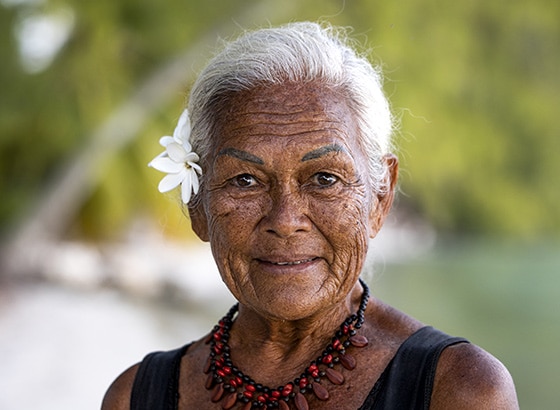
After your voyage, share your experiences with those around you, raise awareness amongst your friends and family, and become a genuine ambassador for the regions visited by continuing to learn more about them.

Safety and respect for ecosystems on expedition cruises
On our expedition cruises, all off-ship excursions are conducted in small groups accompanied by naturalist guides, and follow paths and trails marked out for you. The guides provide regular reminders about the rules and instructions at onboard briefings, and help you choose the most suitable excursions by evaluating your physical capabilities with you. PONANT provides you with advice about the type of clothing suitable for the climatic conditions and the disembarkation sites in advance.
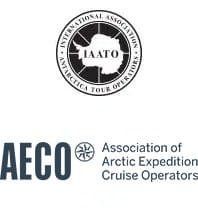
“In the polar regions, prior to each disembarkation, a protocol designed to preserve the biosafety of fragile natural sites is put in place: passengers are required to decontaminate their boots and clothes to avoid introducing invasive species such as seeds, insects, fungi, mould, etc.”
ReadNaturalist-guide
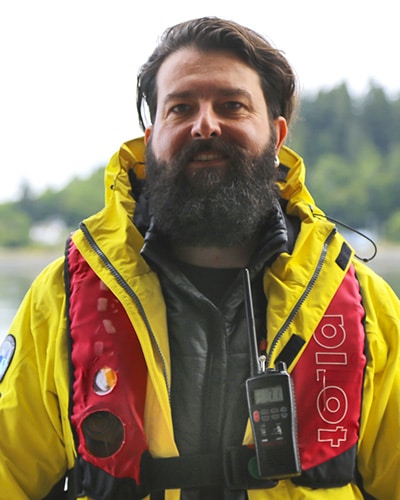
The fleet at the heart of our commitment
PONANT has invested in building a modern fleet, with the goal of achieving the sector’s highest standards. Offering between 16 and 165 cabins and suites only, and equipped with the latest available technologies, our small-capacity ships enable you to explore the world in a more responsible way.
“Promoting sustainable tourism means planning for ships to be environmentally friendly before they are even constructed.
Since then, and In order to remain a pioneer in the sector, PONANT has been improving their environmental performance each time they have been in dry dock.”
New Build Director
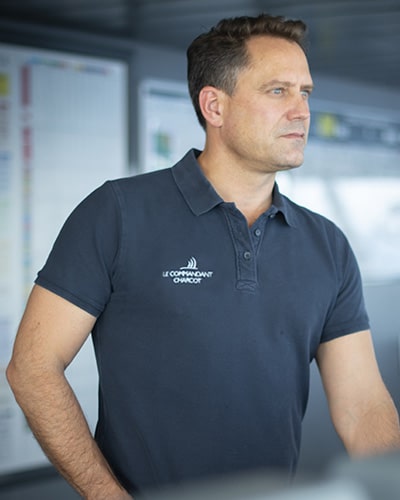

CLEANSHIP certification label
All the ships in our fleet carry the Bureau Veritas CLEANSHIP certification label, which attests to reduced environmental impact. Equipped with generator-powered electric propulsion motors, our ships have achieved the Comfort 1 rating, which is the best level possible in terms of low noise and vibration levels, thus ensuring the comfort of our passengers and respect for underwater wildlife.
Discover our labels and certificationsOur labels, certifications and distinctions
PONANT's commitments in terms of environmental policy form part of the company's corporate purpose. This approach, which is indicative of the priority importance our directors attach to this topic, is illustrated through the international certifications and labels the company holds. Our commitments to a more sustainable and responsible tourism are assessed and recompensed on a regular basis by recognised organisations and experts with specialised expertise in these areas.
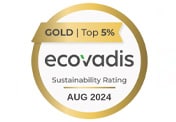
In 2024, PONANT was awarded the Ecovadis gold medal for its performance in social and environmental responsibility (SER). EcoVadis, the global benchmark for measuring CSR, evaluates companies according to four main criteria: the environment (management of environmental impacts, reduction of emissions, energy efficiency), working practices (working conditions, human rights and equal opportunities), ethics (business integrity, compliance with ethical standards), and responsible purchasing (selection of suppliers based on their CSR commitments).
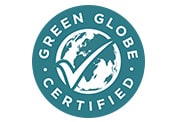
Green Globe certification has been awarded in 2024 to all four Sisterships in, the six PONANT Explorers, Le Commandant Charcot and the sailing yacht Le Ponant. This result rewards the commitment of all PONANT teams to reduce their environmental footprint and contribute to more sustainable tourism.
Launched in 1998, the Green Globe International Standard for Sustainable Travel and Tourism assesses the sustainability of business operations based on 44 criteria and 380 indicators organised around four pillars: sustainable management, social and economic performance, cultural heritage and the environment. The certification process is carried out every year by an accredited independent auditor.
Read more
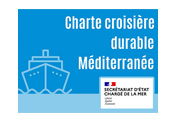
PONANT has signed up to the "Mediterranean Sustainable Cruise Charter" introduced by the French government and its partners. The charter requires cruise lines sailing in Mediterranean waters under French jurisdiction to further pursue their commitment to protecting the marine environment. Its goals are to limit the impact of cruises (protection of aquatic plant habitats, noise and collisions with cetaceans, liquid and solid waste, atmospheric emissions, speed reduction and raising passenger awareness) while at the same time promoting innovative technical solutions that foster sustainable development. Le Champlain was the first ship in our fleet to be audited. It achieved a score of 91%.
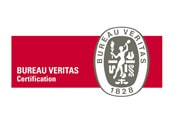
All the ships in our fleet carry the Bureau Veritas CLEANSHIP certification label, which attests to reduced environmental impact. This environmental performance has been made possible through a series of real and genuine technological innovations: dynamic positioning, which avoids the need to drop anchor and thus protects the seabed; quiet and economical electric propulsion; an engine that can run on LS MGO (a lighter and less polluting type of diesel); an innovative way of treating waste and waste water, thus limiting discharges into the sea; low energy lighting using LED bulbs; and reduced smoke emissions.
The PONANT Explorers series holds CLEANSHIP SUPER accreditation, which is awarded to ships that meet the requirements of the International Convention for the Prevention of Pollution from Ships (MARPOL) together with both the International Convention on the Control of Harmful Anti-Fouling Systems on Ships and the Ballast Water Management Convention (covering the emission of polluting substances).
Our ships have also achieved the comfort 1 rating, which is the best level possible in terms of low noise and vibration levels, thus ensuring the comfort of our passengers and respect for underwater wildlife.
*Le Lapérouse, Le Champlain, Le Bougainville, Le Dumont-D'Urville, Le Bellot, Le Jacques-Cartier
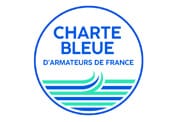
PONANT was the winner of the Charte Bleue d'Armateurs de France trophy (French Ship Owner's Blue Charter trophy) in 2016. This distinction was awarded in recognition of the company's proactive approach with respect to social and environmental responsibility: carefully chosen itineraries; innovative ways of limiting air and water pollution; respect for local populations; membership of the associations IAATO (the International Association of Antarctica Tour Operators) and AECO (Association of Arctic Expedition Cruise Operators), and compliance with protocols designed to maintain the biosecurity of the sites visited; environmental protection awareness raising for crew members and passengers both onboard ship and during shore and land excursions; a responsible human resources policy; and active commitment to protecting the polar regions, the oceans and local peoples.
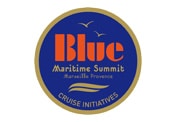
At the "Blue maritime summit Marseille Provence – Cruise Initiatives" conference, organised by the Marseille Provence Cruise Club, PONANT and the other ship-owners histed in Marseille, together with France's Ministry for the Ecological Transition, the Provence-Alpes Côte d’Azur Region and the Aix-Marseille-Provence metropolitan region, signed the "Charte bleue Croisière" (Cruise Blue Charter), a charter committing to a reduction in polluting emissions in the basins of the Port of Marseille and the region.
This charter constitutes a new stage in France's Sud (south) region's "Plan Escale Zéro Fumée" (zero-fume ports of call initiative). There are four main measures incorporated in the charter: the use of shore power connections at cruise terminals as soon as they become available (by 2024); the switch to less polluting fuels, such as 0.1% sulphur marine diesel or LNG, immediately upon entering the port; the promotion of the use of liquefied natural gas and support the creation of a dedicated local sector; and the requirement to keep to a speed of no more than 10 knots when sailing in and out of the ports.
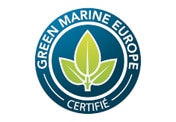
PONANT is the first European cruise line to obtain the Green Marine Europe label (a European certification programme based on North America's Alliance Verte programme).
Assessed and evaluated according to 8 criteria (underwater noise, NOX atmospheric emissions, SOX and PM air pollutants, greenhouse gas emissions, aquatic invasive species, waste management, oily discharges and ship recycling), the charter certifies that its holders have adopted environmentally friendly practices and technologies.
Find out more
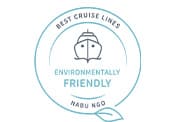
The German non-governmental organisation NABU (Naturschutzbund Deutschland), a leader in the field of ecology in Europe, has placed PONANT in first place in its 2020 ranking of the most environmentally friendly cruise lines.
This ranking is based on an assessment of overall environmental strategy using eight environmental criteria: adherence to the Paris Agreement, climate strategy, emission-reduction measures, the use of shore power connections, the discontinued use of heavy fuel oil, the use of nitrogen oxide catalysts and the use of soot particle filters.
Find out more

PONANT was awarded the French sustainable tourism prize the Prix des Palmes du Tourisme Durable 2020 in the "Voyage" category for completely abandoning the use of fuel oil and switching instead to LSMGO, a step the company took a year in advance of the introduction of international legislation stipulating the use of more environmentally friendly fuels.
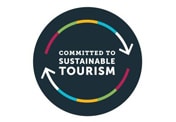
In 2021, PONANT signed up to New Zealand's Tourism Sustainability Commitment (TSC), which sets out 12 sustainability commitments designed to encourage the tourism industry to make a positive social, economic, environmental and cultural contribution to the wider community. By signing up to the TSC, organisations commit to having a sustainability plan in place incorporating the requirements of the initiative, and to both setting measurable targets and reporting on progress made in achieving them.
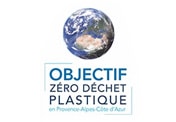
In 2023, as a result of our commitment to eliminating plastic waste, PONANT signed up to the Southern Region's "Zero Plastic Waste" charter. The roadmap concerns the protection of natural environments, the reinforcement of prevention and the management and recycling of plastic waste.
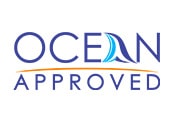
PONANT has been awarded the Ocean Approved label. Launched in 2021, this label is managed by La Fondation de la Mer and is audited by Bureau Veritas. It examines the environmental practices and the continuous improvement approach of companies that aim to reduce the impact on the marine environment as much as possible.

PONANT committed to following the recommendations of the Global Tourism Plastics Initiative, a United Nations programme aimed at encouraging concrete action in the fight against plastic pollution in the tourism sector. Echoing the measures already introduced on Le Commandant Charcot, PONANT has set itself the objective of banning the use of single use plastics across its entire fleet from 2022 onwards.
Our work with other organisations
PONANT is actively involved with think tanks and associations that support innovative ocean protection projects and work to develop the use of environmentally friendly practices in the maritime and tourism sectors.

All the itineraries we operate and protocols we apply in polar regions are designed in accordance with the directives of IAATO (the International Association of Antarctic Tour Operators) and AECO (Association of Arctic Expedition Cruise Operators), two organisations PONANT is a member of and which are responsible for regulating tourism activities in the Antarctic and the Arctic. In particular, they stipulate the number of passengers permitted to disembark as well as how to act and behave, what safety rules to follow, how closely wildlife can be approached, and how paths and trails are marked for disembarkations.
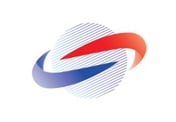
PONANT has joined the Coalition pour la Transition Eco-Energétique du Maritime (T2EM) led by the Cluster Maritime Français (CMF), a network created in 2006 that brings together key players involved with the maritime ecosystem. The coalition now includes more than 430 entities of various types: companies of all sizes, innovation centres, associations and federations, laboratories and research centres, schools and training organisations, local authorities and economic stakeholders, and the French Navy. The CMF helps and supports its members in developing their businesses and projects in more sustainable, environmentally responsible ways both in France and abroad.
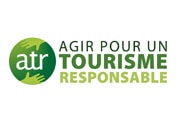
PONANT is working with the Agir pour un Tourisme Responsable (ATR) organisation. Since 2004, ATR has been bringing together travel professionals committed to improving the impact of their activities on the planet and its inhabitants. The organisation is currently made up of the principal travel operators involved in responsible tourism. In addition to organising and maintaining its network of members and managing the Ecocert accreditation scheme, the association also runs a range of responsible tourism related projects and events, such as the Observatoire du Tourisme Responsable body and a world day for responsible tourism, as well as producing responsible tourism related publications and providing training to professionals to help and support them in carrying out their professional activities and evaluating their own practices. As part of their collaboration together, PONANT and ATR are working on introducing a label specifically for cruise operators.
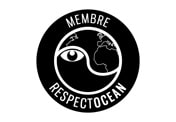
PONANT is one of the active members of the Respect Ocean network. Set up in 2013, Respect Ocean is a network of companies and organisations committed to reducing the impact of their activities on marine and coastal ecosystems and/or helping to keep them healthy and thriving. The organisation's primary objectives are to contribute to promoting solutions and innovation favouring sustainable economic development, to promoting protection and preservation of the ocean and its ecosystems and the highlighting of their intrinsic value, and to fostering joint collaborations between projects in order to contribute to the building of a sustainable ocean economy.
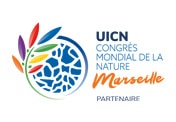
PONANT is a member of the special club of partners and sponsors set up for the purposes of organising the IUCN (International Union for Conservation of Nature) World Conservation Congress in Marseille in 2021 by France's Ministry of the Ecological Transition. Held every four years, the congress brings together leaders and decision-makers from government, civil society, indigenous peoples and the worlds of business and academia with the aim of encouraging them to work together to protect and preserve the environment. For the very first time, on the initiative of France, the general public is being invited to take part in the congress through the provision of "Espaces Générations Nature" : an opportunity for more than 350 institutional, private and non-profit project sponsors and organisers to showcase their initiatives and the actions they are taking to protect and promote biodiversity.
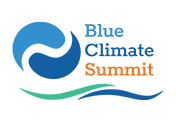
In 2022, PONANT hosted on board the M/S Paul Gauguin the first summit of the Blue Climate Initiative, a programme within the framework of the United Nations Decade of Oceanography for Sustainable Development, whose objective is to federate and support actors who develop solutions to protect the oceans, such as renewable energies, sustainable food production and management of marine resources, and the preservation of biodiversity.
Read more
Press mentions
PONANT has set itself the ambition of becoming a global standard setter with respect to sustainable development and is increasing its commitments in this area. A selection of articles covering the latest news and developments concerning the PONANT Foundation and the measures put in place by the company is available to access here.
Conscious travels
Respect for man and the environment is at the heart of our development. Driven and motivated by the sailing spirit and a passion for peoples, cultures and the oceans, PONANT creates meaningful experiences focused on exploring ecosystems and local cultures. On board and on land, our experts help develop your awareness of the challenges involved in preserving this shared, common heritage. Each voyage is an opportunity to forge lasting ties with the regions visited.
Raise awareness about protecting the environment
Exploring the earth's treasures by sea is a privilege. Marine ecosystems make up 70% of the surface of the globe and account for more than 90% of the total volume inhabitable by the living world, of which probably only 5% has been explored to date. They play an essential role in regulating the climate and have given rise to the greatest civilisations. Our onboard experts make each voyage an opportunity to better understand the importance of preserving this common, shared heritage.
Explore the treasures of our planet's natural and cultural heritage through the eyes of our experts in our online magazine Escales.
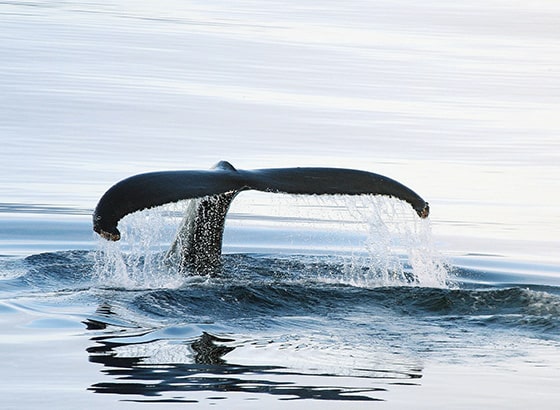

The PONANT Foundation
By booking your cruise, you are supporting the PONANT Foundation. It was created to support projects whose objective is to contribute to the preservation of the oceans, to support the acquisition of scientific knowledge on the polar environment and to promote interactions between peoples and cultures.
Work together with local communities
Every voyage begins with a meeting. Each is designed in advance by our specialists in cooperation with local communities, taking care to ensure their cultures and traditions are respected in the process. Together, they imagine and devise the most suitable and immersive ways of enabling you to experience the natural and cultural treasures of the regions visited.

Take action for science
PONANT works in close collaboration with scientists by enabling them to travel to difficult-to-reach polar regions to carry out their research; especially on board the Le Commandant Charcot, which is equipped with dedicated laboratories. Furthermore, the Météo France weather station installed on the ship enables climatological data to be transmitted continually. We also invite the research teams on board to share their knowledge and expertise with the cruise guests via special talks and lab tours.
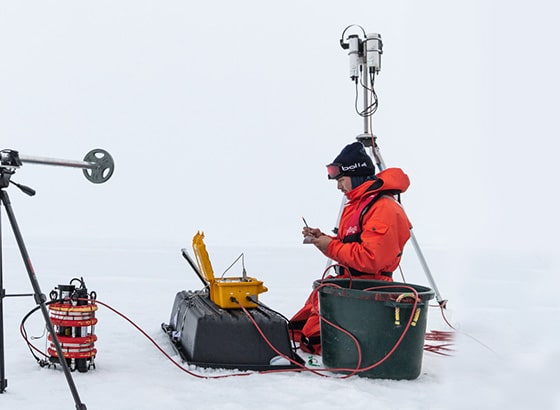

Share your own observations using citizen science apps
Take photos of whale and help supply the Happy Whale tracking app with data, identify and count seabirds so that their distributions and life cycles can be better understood, describe atmospheric phenomena...
